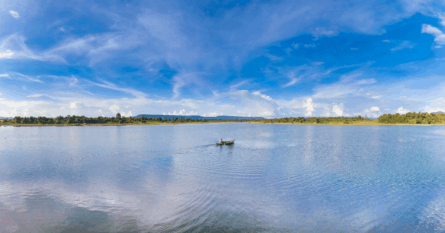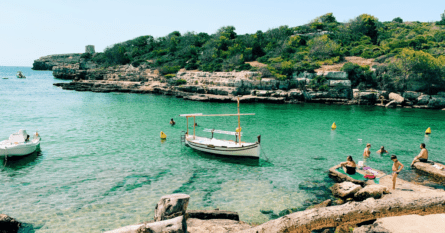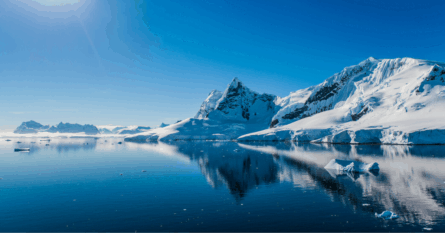Visiting the Maldives soon? Here are a few steps you can take to help promote the longevity and prosperity of this archipelago nation.
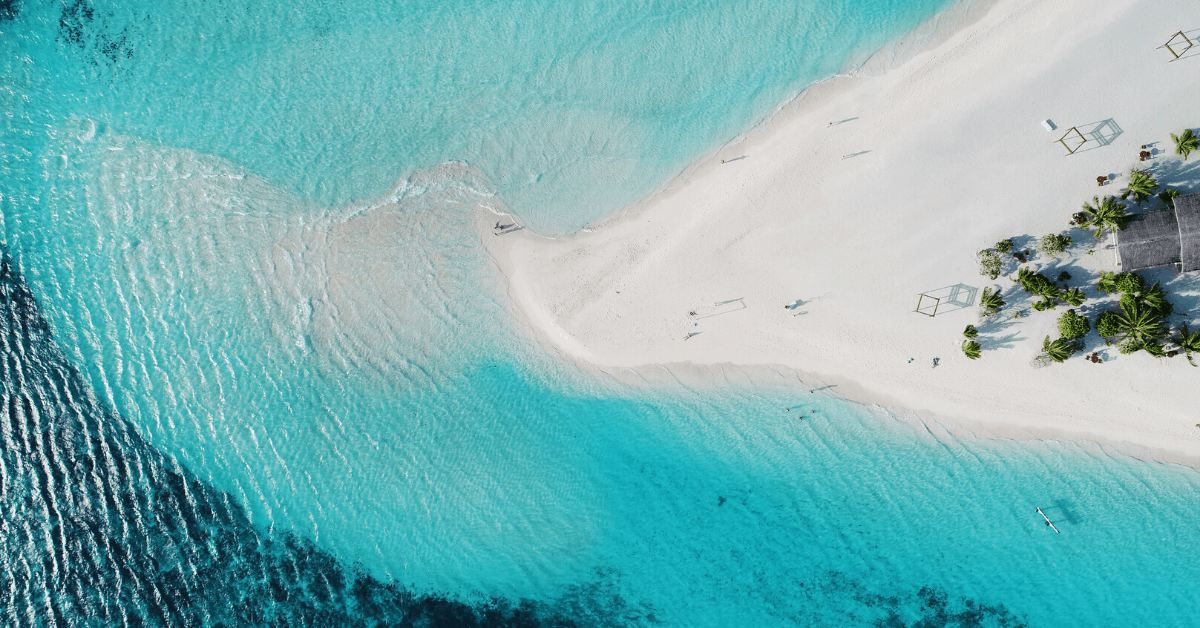
Inconceivably clear turquoise water glistens in the sunlight as it laps against white sand beaches that stretch around islands dotting the Indian Ocean. This is the Maldives. Situated on the equator and comprised of 1190 low-lying islands, the Maldives is a well-known luxury destination, famed for its coral reefs, lagoons, and picture-perfect beach vistas.
But maintaining the beauty of the region involves the work of marine biologists who work directly with Reefscapers, an organization that undertakes coral reef restoration projects across the region by collecting resilient coral fragments and attaching them to coral frames.
Reefscapers also works with various hotels and resorts in the region, including the Four Seasons Resorts Maldives, which acknowledges its responsibility in addressing environmental concerns, its Director of Public Relations Juliana Ang said.
“The Maldives is one of the world’s most pristine and breathtaking destinations and it is also one of the most fragile,” Ang said.
In recent years, the Maldives has become increasingly under threat as a result of pollution, coastline engineering, warming sea waters, rising sea levels, and ocean acidification.
In 2016, elevated water temperatures caused three mass global coral bleaching events. For the Maldives, this resulted in 50 percent of bleached coral and 20 percent dying.
Today, the reefs of the Maldives, tourism, and the economic prosperity of the region are entwined. Tourism is vital for the economy, with reef dependent tourism accounting for more than half of total tourism revenue and 43 percent of GDP. Ensuring that tourism is a sustainable source of revenue is paramount for the resilience of coral reefs and mitigating the impact of human activity is vital.
There’s an array of ways we, as travelers, can be engaged in the conservation and sustainable management of the region.
Sponsor a coral frame
With Reefscapers, you can sponsor your own coral frame, allowing you to help rebuild the reef. Marine biologists at Reefscapers integrate a personalized frame into the reef ecosystem, transplanting healthy coral fragments into the area. Sponsors receive bi-annual photo updates of their coral as it grows, with all data related to the frame available online. It is possible to sponsor a frame for as little as $150.
Adopt a turtle
All species of turtles in the Maldives are endangered or critically endangered. To address this issue, the Olive Ridley Project was founded in 2013, to protect Olive ridley turtles and their habitat.
Many of these turtles, as well as sharks and rays, get caught, trapped, and often killed in entangled in discarded commercial fishing nets, known as ghost nets, which can be found in the Maldives.
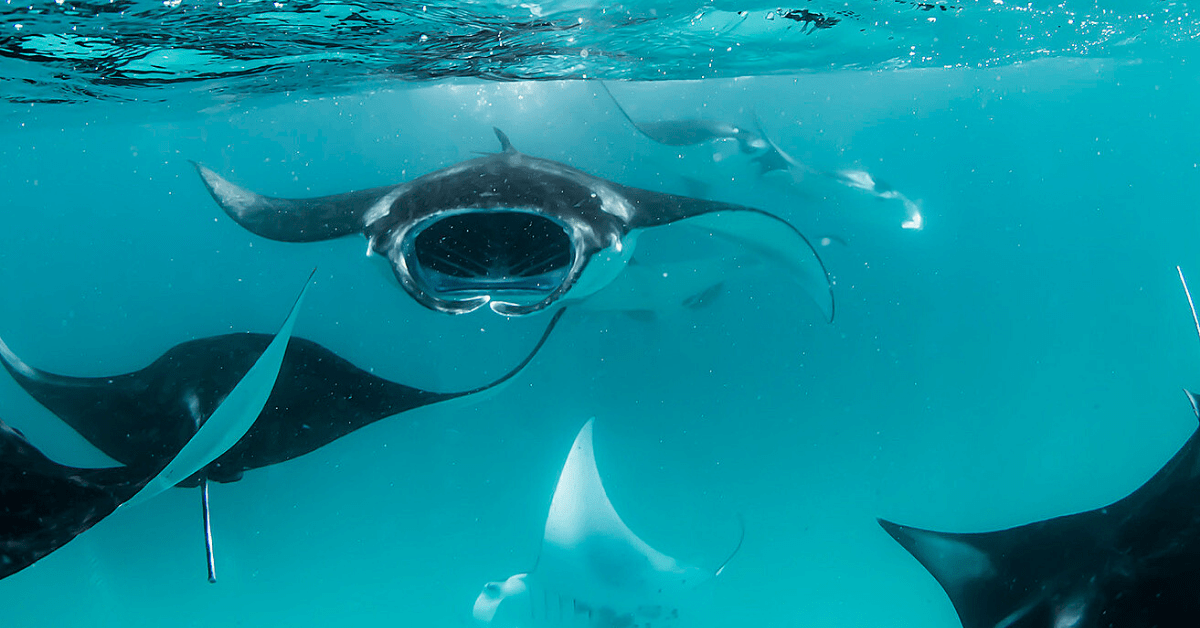
To make your stay more sustainable, you can volunteer with the Olive Ridley Project, adopt a turtle patient, or adopt a turtle living in the Maldives and help facilitate the rescue, rehabilitate and protection of sea turtles and their habitats.
You receive an adoption certificate with the history of the turtle, updates on how their recovery is progressing, and watch live releases, which are broadcast on Facebook.
Stay at an environmentally-conscious resort
Stay at a resort that’s doing something to offset its impact. Many of the resorts partner with Reefscapers. Both Four Seasons Resorts in the Maldives, Kuda Huraa and Landaa Giraavaru, fund and support the work of Reefscapers. In addition, the resorts support marine conservation programs in turtle rehabilitation, clownfish breeding, and manta ray research.
The Four Seasons Landaa Giraavaru resort tackles the issue of plastic waste in collaboration with Parley, a global awareness-raising movement aimed at protecting the world’s oceans and their ecosystems. Through the program, plastic waste from the resort and neighboring local islands is recycled and upcycled. In its first year of operation, more than 1.3 tons of plastic was recycled into sportswear.
Luxury resort Soneva Fushi recycles all its plastic on-site and is both carbon offset and 90 percent waste-free. The resort has long been engaged in experiments to further offset its impact, such as fuelling generators with coconut-derived green diesel. Similarly, Six Senses Laamu plans to be plastic-free by 2022. It currently bottles desalinated water in reusable glass bottles to avoid using 226,600 single-use plastic bottles per year.
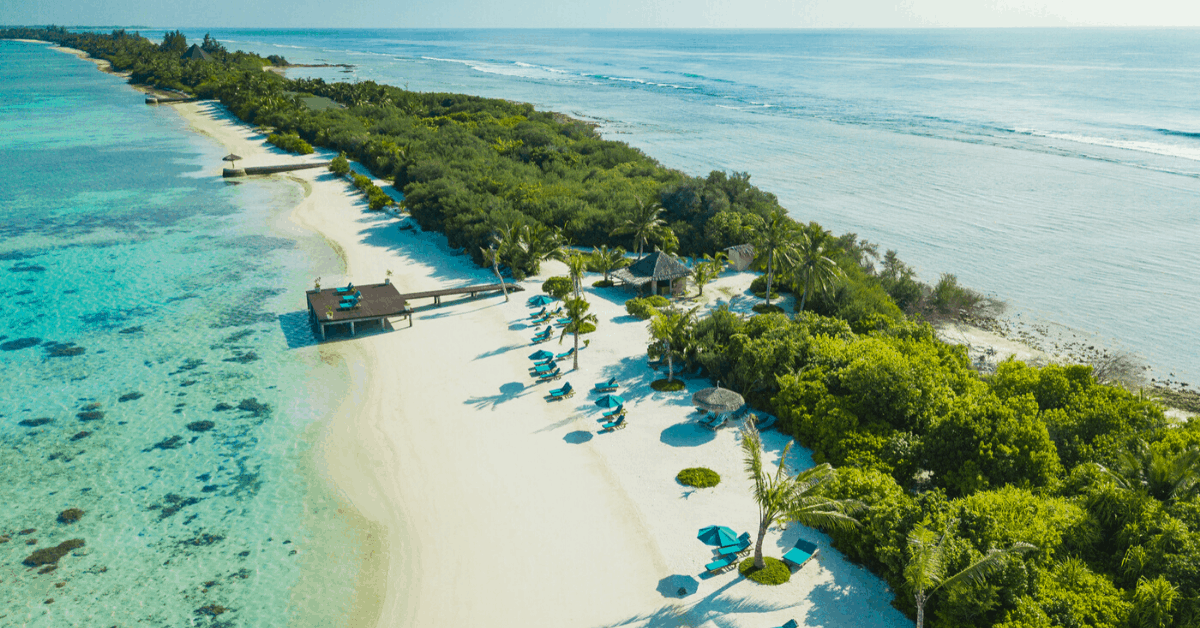
Always use reef-safe sunscreen
Changing your sunscreen to make sure it’s reef-safe is also an easy and effective way to help protect the health of the reefs.
Many sunscreens contain ultraviolet filters, such as oxybenzone, which have been found in almost all the world’s water sources. Oxybenzone, in particular, has been found to contribute to coral bleaching.
Take responsibility
We have the privilege to travel and see magnificent parts of the world. That comes with a responsibility to be the very best traveler we can be. When you spend time in the ocean, don’t touch or walk on the coral, as it is an incredibly fragile living organism.
If you see plastic or rubbish floating in the ocean, always pick it up, take it back to shore, and dispose of it somewhere it can be recycled. Taking individual responsibility to remove rubbish can help keep the region’s animals safe.
If you want to do more, you can volunteer with a beach clean up. In the Maldives, these are regularly hosted by organizations, such as Save the Beach Maldives.
In the context of climate change, we must adopt more sustainable travel practices. Making informed choices and changes to our habits as travelers can help maintain beautiful travel destinations, including the Maldives.

